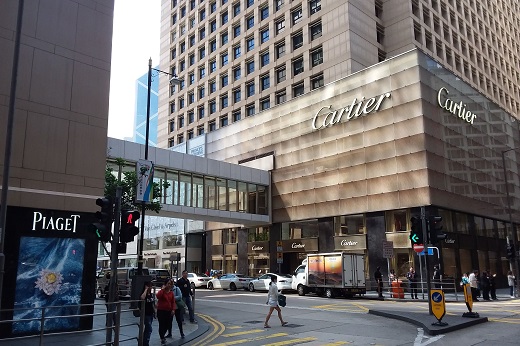|
|
Richemont Sees Tough Road Ahead for Luxury
May 17, 2020 7:35 AM
By Rapaport News
|
|
|

RAPAPORT... It could take up to three years for the luxury market to get back on track, as it relies heavily on consumer sentiment and travel, Richemont chairman Johann Rupert predicted.
“The luxury industry is dependent on customers’ willingness to spend — the so-called ‘feel-good factor’ — and has benefited from increased international travel in recent years,” Rupert said last week. “There will be headwinds in the months ahead.”
While the company has seen strong demand return in China since stores reopened, it may be hard for other countries to rebound as easily.
“No one can say when we will see economic activity normalize,” Rupert added. “Other economies will probably find it difficult to emulate China. We may be looking at 12, 24 or 36 months of grave economic consequences.”
Despite the pandemic, jewelry sales at Richemont — the owner of Cartier and Van Cleef & Arpels — increased 2% in the past fiscal year, as growth in the US, Europe and Japan more than offset a decline in Asia Pacific.
Proceeds from the category rose to EUR 7.22 billion ($7.81 billion) in the 12 months ending March 31. Sales in the watch division fell 4% to EUR 2.86 billion ($3.09 billion). Online sales were strong during the period, driven by the opening of the Cartier flagship store on online shopping platform Tmall’s Luxury Pavilion in January. Cartier’s Juste un Clou and Van Cleef’s Perlée collections performed well for jewelry, while watch sales were hit by protests in Hong Kong, as well as the COVID-19 outbreak, Richemont noted.
Operating profit for the jewelry division decreased 7% to EUR 2.08 billion ($2.25 billion) for the year amid a rise in the price of gold and higher expenditure on store renovations and digital improvements, Richemont said.
Group sales grew 2% to EUR 14.24 billion ($15.41 billion), while profit plummeted 67% to EUR 931 million ($1.01 billion). The large drop in profit reflected the impact of a one-time tax gain on the reevaluation of YNAP shares, the company noted.
Group sales for the fourth fiscal quarter ending March 31 fell 18%, including a 67% drop in Hong Kong. Operating profit slid 22%. Richemont did not disclose fourth-quarter data for jewelry and watches, which together form the company’s largest revenue source.
Richemont has not given an outlook for the coming fiscal year, noting that due to the uncertainty caused by the pandemic, it could not provide accurate figures.
“We are experiencing unprecedented times, with severe disruptions across the world simultaneously,” the company stressed. “The closures of our internal and external points of sales, changing attitudes towards consumption and subdued consumer sentiment will weigh on this year’s results, even if…we are gradually resuming operations as parts of the world emerge from lockdown. It is impossible to make meaningful predictions at this time.”
Image: Richemont’s Cartier, Van Cleef & Arpels and Piaget stores on Charter Road in the Central district of Hong Kong. (Puiatom Woa uovyoad)
|
|
|
|
|
|
|
|
|
|
Tags:
Cartier, Johann Rupert, Rapaport News, Richemont, Van Cleef & Arpels, YNAP
|
|
|
|
|
|
|
|
|
|
|

|
|